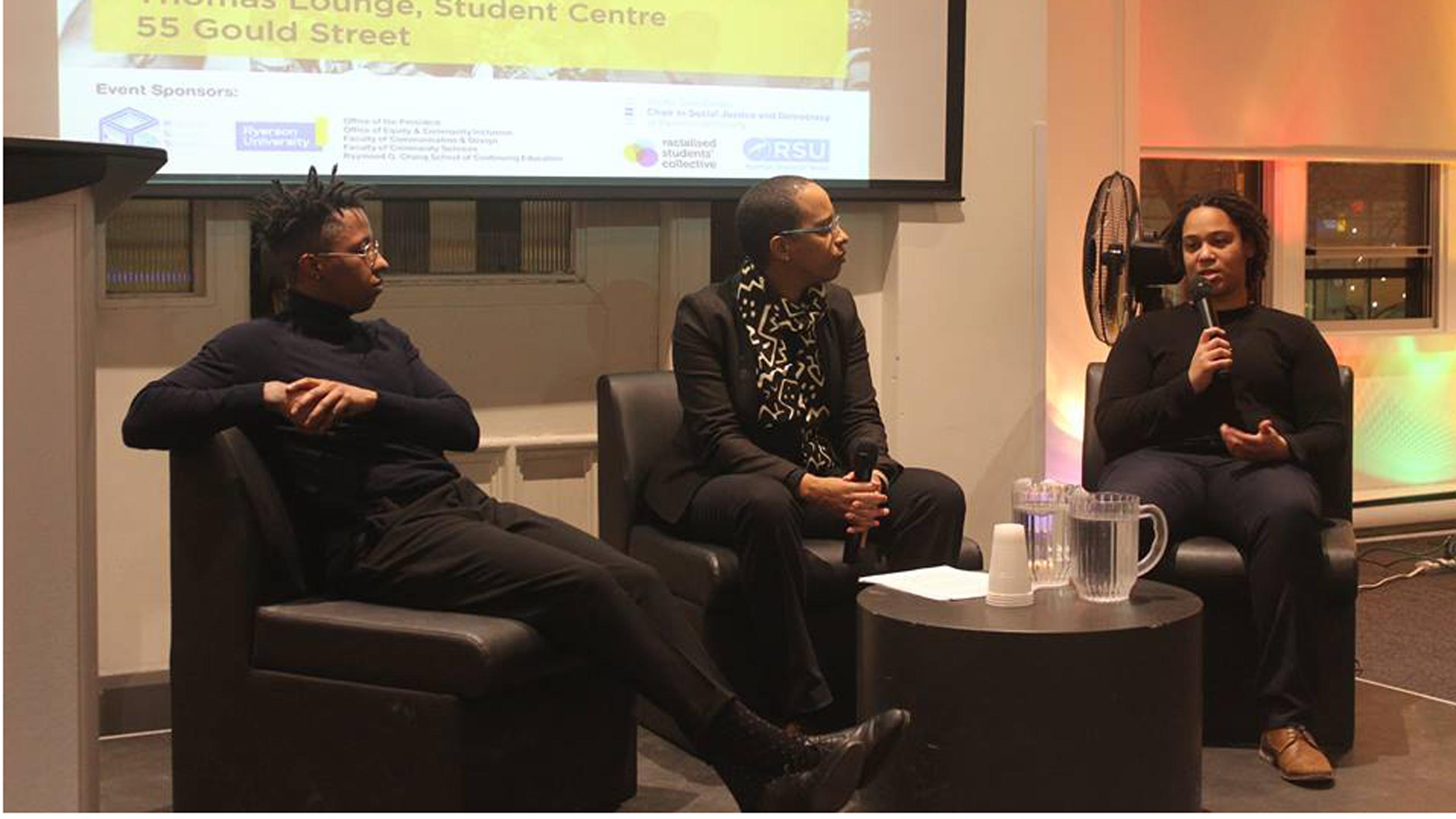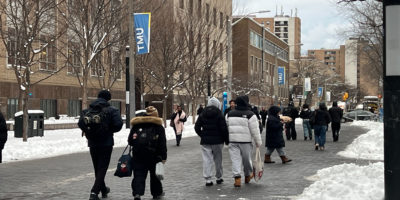By Waverly Neufeld
To celebrate the intersectionality of Black History Month and the LGBTQ+ community, Ryerson’s Racialised Students’ Collective hosted an event showcasing Black and queer entrepreneurs on Tuesday.
The event, Queering BHM: Entrepreneurial Black Queer Activism, featured opening remarks from Maurice Tomlinson, from the Canadian HIV/AIDS Legal Network and was moderated by Kiké Roach, an advocate, community organizer and public speaker. There was also a performance by Kim Ninkuru, a multimedia artist. The event took place in the Thomas Lounge in the Ryerson Student Centre, where approximately 50 people attended.
For Jah Grey, a self-taught photographer and one of the panelists, passion for his trade came from feeling like he couldn’t be vulnerable. “Ever since I’ve been transitioning, it’s been hard to be vulnerable with others and myself…with Black masculinity, vulnerability isn’t something that is spoken about a lot.”
Through his art, Grey said he tries to shed a light on Black men, which typically aren’t given visibility in the media.
“The things that I was taught masculinity was, wasn’t what it really is and it pushed me to find out what that actually looked like for me. It made me realize that masculinity and all these things are just things you figure out for yourself.”
One of his projects, titled “A Room Full of Black Boys”, includes portraits of over 300 Black men taken over the course of two weeks in Toronto.
Grey said that he was able to work with amazing people and was unexpected with how many men were willing to work with him. “I hear certain things that people say about Black men in general and have my own insecurities about myself, which I do project on other males. This project really helped me check myself.”
Another speaker at the event was Jalisa Luces-Mendes, who graduated from Ryerson’s Business Management program, majoring in Entrepreneurship. She is the founder of Toni Marlow, an underwear line for women and transgender men.
Luces-Mendes, who uses a mix of they/her pronouns, said their business is more than just an underwear product. “My goal is that we are all seen and represented. We shouldn’t have to go find those nooks and crannies to find underwear that fits. You should be able to walk into the Bay and Nordstrom or wherever you want and underwear is just there.”
For Luces-Mendes, part of the journey of her business was learning what her strengths were and when to delegate. “Once you figure that out, your business really starts to take off.”
Grey said that even though his career is a lot of work and commitment, it’s worth it as he gets to do things he wouldn’t be able to if he was working for someone.
“I always remind myself that my worst day doing freelance is not even the best day working for somebody else. My worst day of freelance is nothing compared to the stress and how draining it can be working for people,” said Grey.
Since being a freelance artist, Grey says his mental health has improved.
“I’ve been in a better position because I’m doing something that I love and care about. Try to find something that you really love doing and it will feel worth it. Mentally you’ll see how worth it that is. I know that it’s working ‘cause I can feel that.”












Leave a Reply